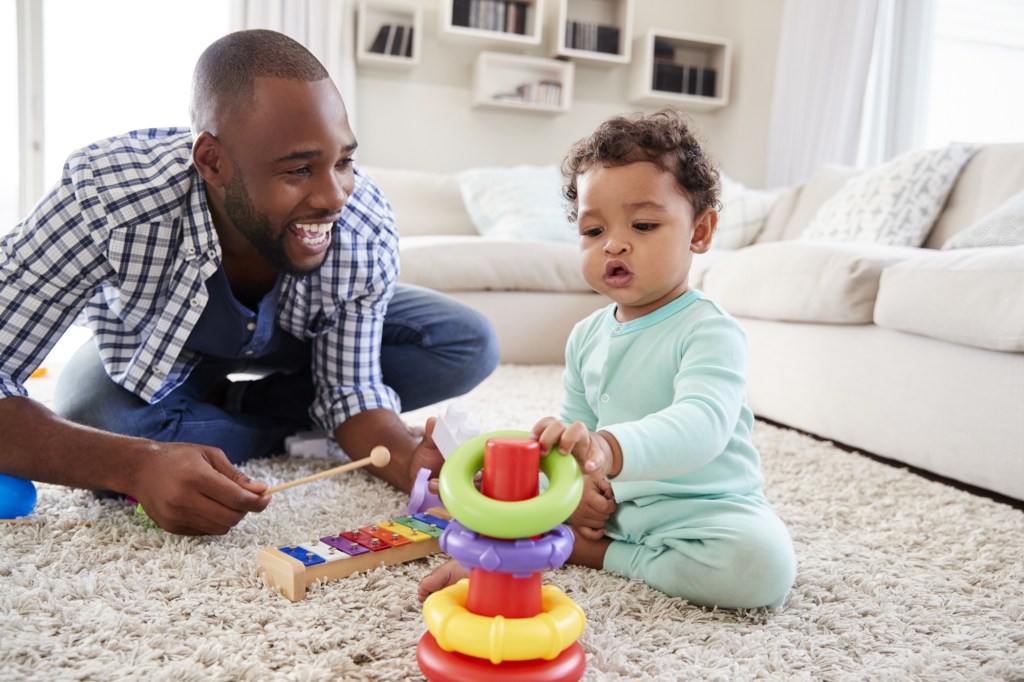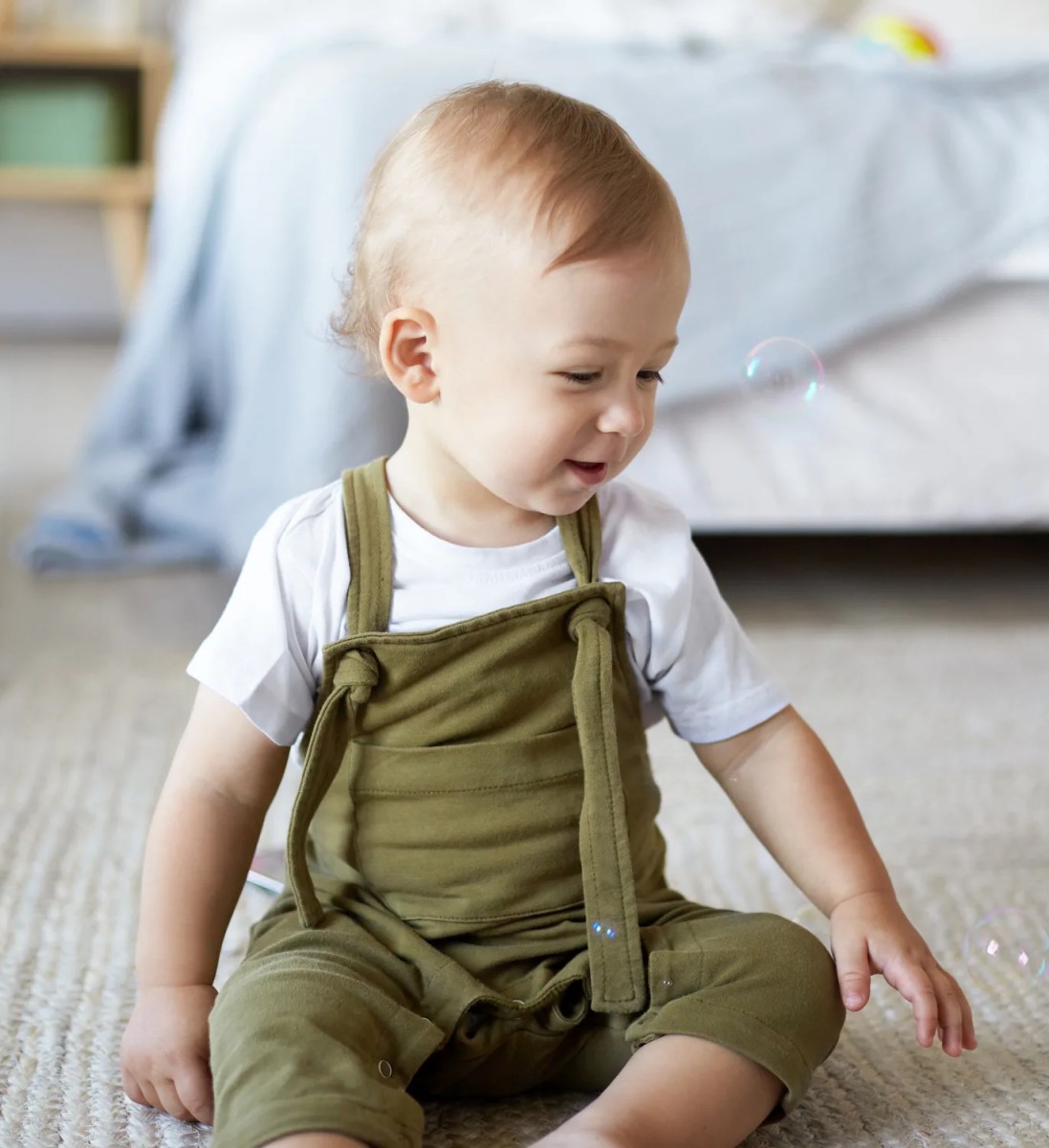Your cart is currently empty!
A Guide to Sitting Up at 6 Months

If they fits they sits. After months of tummy time, your baby is ready to sit up on their own.
Here’s What You Need To Know:
- Help you baby sit up by softly holding their lower hip bones. Reduce support as they get more confident.
- Put toys on a low surface or just out of reach to encourage your little one to prop themselves up.
- When teaching your mini to sit, surround their area with soft materials, like blankets, to cushion their fall.
- Aim for 20 to 30 minutes of tummy time a day. Your baby will need to be able to lift their chest off the floor with their hands before they can sit up straight.
Baby Sitters Club
Motor skills play a critical role in early development. Most babies learn to sit without support close to the 6-month mark. This is a thrilling time that prepares your child for meaningful exploration.
While it’s an exciting milestone in itself, the act of sitting also signifies that your child has more control over the body’s core muscles. At this stage, your baby relies on their core to prop their body up and stay balanced. It prepares them for the act of walking, which is a whole body exercise. Below are a couple ways to help your little one pop a squat.




Gently give them support
You can softly hold their lower hip bones. Reduce support as they get more confident in sitting.
Add toys to the lesson
Put toys on a low surface or just out of reach to encourage your little one to prop themselves up.
Let them safely and gently fall over
In what will be a metaphor in life, you have to let your kid lose their balance and topple over every now and then, so they can learn to use their muscles to prevent falling. When teaching them to sit, you can surround their area with soft materials, like blankets, to cushion their fall.
Keep doing tummy time
Aim for 20 to 30 minutes of tummy time a day. Your baby will need to be able to lift their chest off the floor with their hands before they can sit up straight.
The quicker they can sit up, the faster they can learn and explore.
A study published in the journal Pediatrics highlights the importance of early motor skills as an agent of change over time. The same findings suggest a cause and effect relationship between motor skills and subsequent language learning in developing infants. Better control of the self-sitting posture is correlated with better hand coordination in reaching for objects.
Akhgar Ghassabian, a postdoctoral fellow at the National Institutes of Health and lead author of the study explained to CNN, “Our findings are consistent with those of longitudinal studies performed a few decades ago, showing that the age a child achieved major milestones of standing or walking were predictors of later child performance in memory.”
Want to know more? Download the entire study here.

Summary
At 6 months, babies are already making invisible calculations about the things around them. They are assessing the spatial and physical properties of objects, how far out of reach it is, and if they will use one or two hands to hold an object. Again, the ability to sit without support, control their core, and handle more objects, is believed to create a cascade of benefits for cognitive and physical development.
In many ways, it is logical — the more a baby can interact with the world, the more the baby can learn from it. Researchers have found that sittings skills around this period were correlated with better vocabularies at 10 and 14 months of age. So sit your baby up at different zones of the home and let them interact with their environment.
Sources
- Libertus, Klaus & Violi, Dominic. (2016). Sit to Talk: Relation between Motor Skills and Language Development in Infancy. Frontiers in Psychology. 7. . 10.3389/fpsyg.2016.00475.
- Rochat, P. and Goubet, N., Development of sitting and reaching in 5- to 6-month-old infants. Infant Behav. Devel., 1995, 18, 53–68.
- Akhgar Ghassabian, Rajeshwari Sundaram, Erin Bell, Scott C. Bello, Christopher Kus and Edwina Yeung
Pediatrics June 2016, e20154372; DOI: https://doi.org/10.1542/peds.2015-4372











